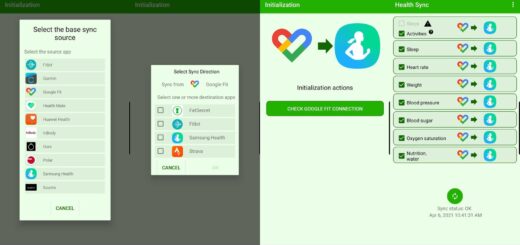Homeowners insurance rates
If you’re a homeowner, you’re probably familiar with the concept of homeowners insurance. But have you ever wondered about the rates associated with it? In this article, we’ll provide you with a brief overview of homeowners insurance rates. From property protection and dwelling coverage to the various discounts available, we’ll give you the information you need to better understand the costs associated with insuring your home. So if you’ve been curious about homeowners insurance rates, keep reading to learn more!

Factors Affecting Homeowners Insurance Rates
When it comes to homeowners insurance, there are several factors that can affect the rates you’ll pay for coverage. These factors can vary from person to person and can have a significant impact on the cost of your policy. It’s important to understand these factors so you can make informed decisions about your coverage. Here are some key factors that can affect homeowners insurance rates:
Location
One of the biggest factors that can affect your homeowners insurance rates is the location of your home. Insurance companies take into account the risk associated with your area when determining your premium. If you live in an area prone to natural disasters such as hurricanes, tornadoes, or wildfires, you can expect to pay higher rates for coverage. Similarly, if you live in a high-crime area, you may also face higher premiums.
Home Features
The features of your home can also impact your homeowners insurance rates. Factors such as the age of your home, the type of construction materials used, and the condition of your plumbing, electrical, and heating systems can all affect the cost of your coverage. Older homes or homes with outdated systems may be seen as higher risks and therefore may result in higher premiums.
Claims History
Your claims history can also impact your homeowners insurance rates. If you have filed multiple claims in the past, insurance companies may see you as a higher risk and charge higher rates for coverage. On the other hand, if you have a history of few or no claims, you may be eligible for discounts or lower rates.
Credit Score
Believe it or not, your credit score can also affect your homeowners insurance rates. Insurance companies often use credit-based insurance scores to determine the level of risk you present as a policyholder. Generally, individuals with higher credit scores are considered lower risk and may qualify for lower premiums. It’s important to maintain a good credit score to help keep your homeowners insurance rates more affordable.
Deductibles
The deductible you choose for your homeowners insurance policy can also affect your rates. A deductible is the amount you must pay out of pocket before your insurance coverage kicks in. Typically, a higher deductible will result in a lower premium, while a lower deductible will result in a higher premium. It’s important to strike a balance between a deductible you can afford and a premium that fits within your budget.
By understanding these factors and how they can affect your homeowners insurance rates, you can make better decisions about your coverage and potentially save money on your policy. It’s always a good idea to reach out to multiple insurance providers to get quotes and compare rates before making a final decision.
Types of Homeowners Insurance
When it comes to homeowners insurance, there are several different types of policies available. Each type offers a different level of coverage and is designed to meet the needs of different homeowners. Here are the most common types of homeowners insurance policies:
HO-1: Basic Form
The HO-1 policy is the most basic form of homeowners insurance. It provides coverage for specific perils, such as fire, lightning, smoke damage, vandalism, and theft. This type of policy is not as comprehensive as other types and may not cover all potential risks.
HO-2: Broad Form
The HO-2 policy, also known as the broad form, offers additional coverage compared to the basic form. It includes protection against a wider range of perils, such as falling objects, weight of ice or snow, water damage from plumbing issues, and electrical damage to appliances.
HO-3: Special Form
The HO-3 policy is the most common type of homeowners insurance policy. Known as the special form, it provides comprehensive coverage for both the dwelling and personal property against all risks, except those explicitly excluded in the policy. It offers more extensive coverage compared to the basic and broad form policies.
HO-4: Renter’s Insurance
Renter’s insurance, also known as HO-4, is designed specifically for tenants who rent their homes or apartments. It provides coverage for personal property, liability, and additional living expenses if the rental dwelling becomes uninhabitable due to a covered loss. It does not cover the physical structure of the building, as that is the responsibility of the landlord.
HO-5: Comprehensive Form
The HO-5 policy, also known as the comprehensive form, offers the highest level of coverage for both the dwelling and personal property. It protects against all risks, including those excluded in the policy, and provides broader coverage compared to the HO-3 policy.
HO-6: Condo Insurance
HO-6 insurance is designed specifically for condominium owners. Since condo owners typically only own the interior of their unit, HO-6 policies provide coverage for personal property, liability, and additional living expenses. The physical structure of the building is typically covered by the condominium association’s master insurance policy.
HO-7: Mobile Home Insurance
Mobile home insurance, or HO-7, is specifically designed for mobile or manufactured homes. These policies offer coverage for the dwelling, personal property, liability, and additional living expenses. They are tailored to address the unique risks associated with mobile homes.
HO-8: Older Home Insurance
HO-8 insurance is designed specifically for older homes that may not meet the replacement cost requirements of other policies. These policies provide coverage for the actual cash value of the home and may have specific limitations and exclusions.
Understanding the different types of homeowners insurance policies can help you determine which one is the best fit for your needs. It’s important to carefully review the coverage options and consult with an insurance professional to ensure you have the right level of protection for your home.
Ways to Lower Homeowners Insurance Rates
If you’re looking to lower your homeowners insurance rates, there are several strategies you can consider. By taking proactive steps to mitigate risk and explore potential discounts, you can potentially save money on your policy. Here are some effective ways to lower your homeowners insurance rates:
Shop Around for Quotes
One of the most straightforward ways to potentially save money on your homeowners insurance is to shop around for quotes from multiple insurance providers. Rates can vary significantly between companies, so it’s important to compare options and find the best balance between coverage and cost.
Bundle Policies
Many insurance companies offer discounts for bundling multiple policies together. For example, you can often save by bundling your homeowners and auto insurance with the same provider. Bundling can result in significant savings on your premiums.
Increase Deductible
Opting for a higher deductible can also help lower your homeowners insurance rates. A deductible is the amount you must pay out of pocket before your insurance coverage kicks in. By increasing your deductible, you take on more risk, which can lead to lower premiums.
Improve Home Security
Investing in home security measures such as alarm systems, deadbolt locks, and security cameras can lower your homeowners insurance rates. These measures reduce the risk of theft or damage, making your home a safer bet for insurance companies.
Maintain a Good Credit Score
Your credit score can play a role in determining your homeowners insurance rates. Insurance companies often use credit-based insurance scores to assess risk. Maintaining a good credit score can help you qualify for lower premiums, as individuals with higher credit scores are typically seen as lower risk.
By implementing these strategies, you can potentially lower your homeowners insurance rates and save money on your policy. It’s always a good idea to discuss your options with your insurance provider and explore any available discounts or savings opportunities.
Homeowners Insurance Discounts
Insurance companies often offer various discounts that can help homeowners save money on their insurance premiums. These discounts are typically based on factors that lower the insurer’s risk, such as added security measures or loyalty to the company. Here are some common homeowners insurance discounts to be aware of:
Multi-Policy Discount
Many insurance companies offer a multi-policy discount for homeowners who bundle their homeowners insurance with other policies, such as auto or life insurance. This can result in significant savings on both premiums.
Home Security Discount
Installing a monitored alarm system, burglar alarms, or other security devices can often qualify you for a home security discount. These measures reduce the risk of theft or damage, leading to potential savings on your homeowners insurance.
Claims-Free Discount
If you have a history of few or no claims on your homeowners insurance, you may be eligible for a claims-free discount. Insurance companies reward policyholders who have a lower risk of filing claims by offering lower premiums.
Smoke Alarms Discount
Having smoke alarms installed in your home can also lead to a discount on your homeowners insurance. Smoke alarms help detect fires early, reducing the risk of extensive damage or loss.
Newly Built Home Discount
If you have recently built your home, you may be eligible for a discount on your homeowners insurance. Newly built homes are often seen as having fewer risks and more up-to-date construction that can withstand potential perils.
It’s important to check with your insurance provider to see which discounts you may qualify for. Taking advantage of these savings opportunities can help make your homeowners insurance more affordable while providing you with the coverage you need.

Tips for Choosing the Right Homeowners Insurance
Choosing the right homeowners insurance policy is an important decision that requires careful consideration. With so many options available, it’s essential to understand your coverage needs and find an insurance company that meets your expectations. Here are some tips to help you choose the right homeowners insurance:
Evaluate Coverage Needs
Before selecting a homeowners insurance policy, take the time to evaluate your coverage needs. Consider the value of your home, your personal belongings, and any additional risks you may face. This will help you determine the appropriate level of coverage you should seek.
Research Insurance Companies
Take the time to research different insurance companies and their reputations. Look for providers with a strong financial standing and a track record of excellent customer service. You can also check online reviews and seek recommendations from friends and family.
Read Policy Details Carefully
When reviewing potential homeowners insurance policies, be sure to read the policy details carefully. Pay attention to the coverage limits, deductibles, exclusions, and any additional riders or endorsements that may be available. Understanding the terms and conditions of your policy is essential to ensure you have the coverage you need.
Consider Customer Reviews
Customer reviews can provide valuable insights into the experiences of other policyholders with a particular insurance company. Look for feedback on customer service, claims handling, and overall satisfaction. This can help you gauge the quality of service you can expect from a particular insurer.
Compare Quotes from Multiple Providers
Obtaining quotes from multiple insurance providers is crucial to ensure you’re getting the best coverage at a competitive price. Compare the quotes side by side, considering factors such as coverage limits, deductibles, and overall cost.
By following these tips, you can make an informed decision about your homeowners insurance and choose a policy that provides the right level of coverage for your needs.
Understanding Home Insurance Coverage
Understanding the different types of coverage included in a homeowners insurance policy is essential to ensure you have adequate protection for your home and belongings. Here are the main types of coverage typically provided by homeowners insurance:
Dwelling Coverage
Dwelling coverage is the part of your homeowners insurance policy that protects the structure of your home. It provides coverage for damage caused by covered perils such as fire, windstorm, vandalism, and more. This coverage typically extends to the physical structure of your home, including the walls, roof, floors, and attached structures like garages or decks.
Other Structure Coverage
Other structure coverage protects structures on your property that are not attached to your main dwelling. This can include structures like sheds, detached garages, fences, and even swimming pools. The coverage limit for other structures is typically a percentage of the dwelling coverage limit.
Personal Property Coverage
Personal property coverage provides protection for your belongings inside your home, such as furniture, electronics, clothing, and more. If your personal property is damaged, destroyed, or stolen due to a covered peril, your homeowners insurance can help cover the cost of replacing or repairing these items up to the policy’s coverage limit.
Liability Coverage
Liability coverage is an important component of homeowners insurance that protects you if someone is injured on your property or if you cause damage to someone else’s property. This coverage can help cover legal fees, medical expenses, or settlement costs if you’re found liable for an accident or injury that occurs on your property.
Additional Living Expenses Coverage
If your home becomes uninhabitable due to a covered event, additional living expenses coverage can help cover the cost of living elsewhere temporarily. This can include expenses such as hotel bills, restaurant meals, and other necessary living costs until your home is repaired or rebuilt.
Understanding the different types of coverage provided by homeowners insurance is crucial to ensure you have the right level of protection for your specific needs. Be sure to carefully review your policy and consult with your insurance provider if you have any questions or concerns.
Additional Coverages for Homeowners Insurance
In addition to the standard coverage included in a homeowners insurance policy, there are several additional coverages you can consider to enhance your protection. These additional coverages can provide added peace of mind and help fill potential coverage gaps. Here are some common additional coverages for homeowners insurance:
Flood Insurance
Standard homeowners insurance policies typically do not provide coverage for flood damage. If you live in an area prone to flooding, it’s important to consider purchasing a separate flood insurance policy. Flood insurance can help protect your home and belongings in the event of a flood, providing coverage for flood-related damage.
Earthquake Insurance
Similar to flood insurance, earthquake insurance is not typically included in a standard homeowners insurance policy. If you live in an area prone to earthquakes, it’s important to explore earthquake insurance options to protect your home. This coverage can help cover the cost of damages resulting from an earthquake.
Jewelry or Valuable Items Coverage
If you own expensive jewelry, antiques, or other valuable items, it’s a good idea to consider adding scheduled personal property coverage to your homeowners insurance policy. This coverage extends the protection provided to these high-value items beyond the limits of your standard personal property coverage.
Sewer or Drain Backup Coverage
In the event of a sewer backup or drain blockage, significant damage to your home can occur. While standard homeowners insurance policies typically don’t cover this type of damage, you can often add sewer or drain backup coverage as an endorsement to your policy.
Identity Theft Coverage
Identity theft is a growing concern in today’s digital age. Adding identity theft coverage to your homeowners insurance policy can provide coverage for expenses related to recovering from identity theft, such as legal fees, credit monitoring, and lost wages.
Considering these additional coverages can help ensure you have the right level of protection for your specific needs and circumstances. Be sure to discuss your options with your insurance provider and determine which coverages may be appropriate for you.
Factors That Can Increase Homeowners Insurance Rates
While there are several factors that can help lower your homeowners insurance rates, there are also factors that can potentially increase the cost of your coverage. It’s important to be aware of these factors so you can make informed decisions about your insurance and find ways to mitigate potential rate increases. Here are some factors that can result in higher homeowners insurance rates:
High-Risk Location
If your home is located in an area that is prone to natural disasters, such as hurricanes, tornadoes, or wildfires, you can expect to pay higher insurance rates. These high-risk areas present a greater likelihood of significant damage or loss, leading to increased insurance premiums.
Older Home
Older homes may be seen as higher risks by insurance companies. Older homes often have outdated systems, such as plumbing, electrical, or heating, which can increase the chances of damage or a loss. As a result, insurance rates for older homes may be higher.
Poor Credit Score
Your credit score can also impact your homeowners insurance rates. Insurance companies often use credit-based insurance scores to assess risk. Individuals with lower credit scores may be seen as higher risks and may face higher insurance premiums as a result.
Previous Claims
If you have a history of filing multiple claims on your homeowners insurance, insurance companies may consider you a higher risk. Previous claims can indicate a higher likelihood of future claims, leading to increased insurance rates.
Expensive Home Features
Certain expensive home features, such as a swimming pool, can increase the cost of your homeowners insurance. Pools pose a potential liability risk, so insurance providers may charge higher rates to account for this added risk.
Understanding these factors can help you better evaluate your insurance options and take steps to potentially mitigate or offset potential rate increases. It’s always a good idea to consult with your insurance provider to discuss your unique circumstances and explore any available discounts or savings opportunities.
Common Mistakes to Avoid with Homeowners Insurance
When it comes to homeowners insurance, making mistakes can be costly. It’s important to avoid common pitfalls to ensure you have the coverage you need and save money on your policy. Here are some common mistakes to avoid with homeowners insurance:
Underinsuring Your Home
One of the most significant mistakes homeowners can make is underinsuring their home. Failing to accurately estimate the replacement cost of your home can leave you financially vulnerable in the event of a loss. It’s important to work with your insurance provider to determine the appropriate coverage limits for your dwelling.
Not Updating Coverage
As time goes on, your coverage needs may change. Failing to update your homeowners insurance policy to reflect these changes can leave you underinsured. It’s important to regularly review your policy and make any necessary updates, such as changes in the value of your home or additions to your property.
Not Understanding Exclusions
Every homeowners insurance policy has exclusions, or specific circumstances or events that are not covered. It’s important to carefully review and understand these exclusions to ensure you have appropriate coverage. If you have specific concerns or risks, discuss them with your insurance provider to see if additional coverage options are available.
Not Documenting Possessions
In the event of a loss or damage to your personal belongings, it can be difficult to prove the value of your possessions without proper documentation. It’s important to create an inventory of your personal property and keep records of receipts, photographs, and appraisals. This can help streamline the claims process and ensure you receive appropriate compensation.
Ignoring Policy Renewals
It’s important to pay attention to policy renewal dates and be aware of any changes in coverage or rates. Ignoring policy renewals can lead to lapses in coverage or missed opportunities to make changes to your policy. Stay on top of your renewal dates and review your policy annually to ensure it still meets your needs.
By avoiding these common mistakes and taking proactive steps to manage your homeowners insurance, you can ensure you have the coverage you need and potentially save money on your policy.
Consequences of Not Having Homeowners Insurance
Choosing not to have homeowners insurance can have significant consequences that can put your finances, assets, and future at risk. It’s important to understand the potential consequences of not having homeowners insurance so you can make informed decisions about protecting your home. Here are some potential consequences of not having homeowners insurance:
Financial Loss
Without homeowners insurance, you would bear the full financial burden of repairing or rebuilding your home in the event of a covered loss. This can be a significant financial burden that may be difficult to recover from without insurance.
Legal Liabilities
If someone is injured on your property and you are found liable, you could be held responsible for medical expenses, legal fees, and potential damages. Homeowners insurance provides liability coverage to protect you in the event of an accident or injury on your property.
Lack of Protection for Possessions
Without homeowners insurance, your belongings are not protected against damage or loss due to covered perils. This means that if your home is damaged by fire or your possessions are stolen, you would have to bear the cost of replacing these items on your own.
Inability to Secure Mortgage Loans
Most mortgage lenders require homeowners insurance as a condition of the loan. Without insurance, you may be unable to secure a mortgage or refinance your existing mortgage. This can limit your options for homeownership or result in higher costs.
Choosing not to have homeowners insurance leaves you financially vulnerable and exposed to potential risks and liabilities. It’s important to carefully consider the potential consequences and make an informed decision about protecting your home and assets.
By understanding the factors that can affect homeowners insurance rates, the different types of coverage available, ways to lower insurance rates, and the potential consequences of not having homeowners insurance, you can make informed decisions about your coverage. Remember to shop around for quotes, review policy details carefully, and consult with insurance professionals to ensure you have adequate coverage at a price that fits your budget.
















It's great that you talked about how business insurance can provide financial protection against unexpected events and help ensure the…
I like that you mentioned how business insurance is essential for protecting your bottom line and the long-term viability of…